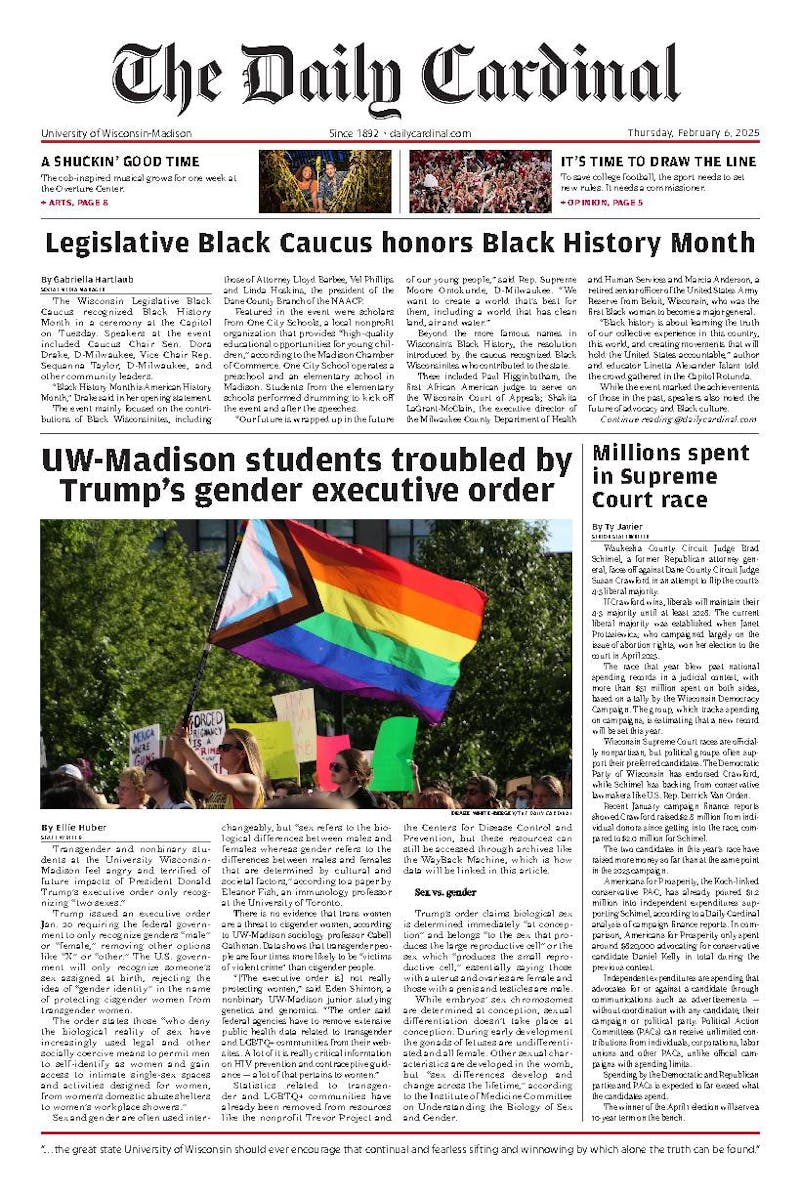I don't think that I could get through the week without ""This American Life,"" ""Filmspotting,"" ""Fresh Air"" or many of the other great programs that are available through National Public Radio (NPR). Local television and radio programs that explore art, culture and state issues keep me up-to-date with current events.
But within the next few months, hard decisions will be made about budgets, both at the statewide and federal level, and one proposal by the Republican-controlled House of Representatives details a plan to cut funding for programs like the ones that keep me and many others informed. Released February 11, the proposal calls for over $61 million in cuts from such programs. I don't agree with any of these measures, but I'm particularly perturbed by the inclusion of the Corporation for Public Broadcasting (CPB)—which is at risk of losing all of its funding.
The CPB funds about 15-20 percent of the aggregate revenues of all public broadcast stations. By law, 95 percent of CPB's appropriation from the federal government has to go toward local television and radio programs. For the fiscal year 2010, its allocation for local programs was roughly $400 million. If this proposal passes, many of the programs on NPR and public television will have to find other methods of revenue privately or else they will cease to exist.
The question is whether there exists a private market for local art programs that fit into a similar model of commercial stations? More commercials and underwriting aren't concrete solutions to help salvage public television and radio.
The CPB provides funding for incredibly rich programs that serve a communal service. Many political talking heads relay their opinions through NPR radio shows, and some believe that PBS programs like ""Sesame Street"" and other educational shows will suffer. And while this may be the case for some programming, I seriously doubt that a show as popular as ""Sesame Street"" will go downhill—it's too commercially viable. What is going to be cut is the funding for local programs in rural areas. I don't understand how you can cut a show that has been deemed by Congress and the general populace (over 170 million Americans use public media each month) as an American investment in the development of non-commercial conversations and education.
This proposed bill needs to address discretionary items in our budget like defense, homeland security and mandatory spending on entitlement programs like Social Security.
That's where the money is. If you have to raise taxes because we are fighting a war and are facing a huge deficit, I would support paying more taxes to keep non-commercial local programs on the air.
I'm both a full-time student and employee but would not mind allocating more of my income to help fund the CPB, which is the mindset most Americans should have. I think the choice we face is one of what we prioritize as a nation.
We say that we value education, but we don't adequately compensate our teachers. Our national test scores have been dwindling, especially in math and science. Our politicians say that they value education, but they never want to give anything up for it. Allocating $422 million a year may seem like a lot for the CPB, but considering the value of needed radio and television programs, it really isn't.
These programs allow honest debate and provide more depth to issues than the commercialized stations. This type of media is beholden to its ad revenue. If I have to pay a little extra ($1.35 per American per year, to be exact) of my own money to protect public education, I am all for sustaining the CPB.
Soren Nieminen is a senior majoring in communication arts. Please send all feedback to opinion@dailycardinal.com.





